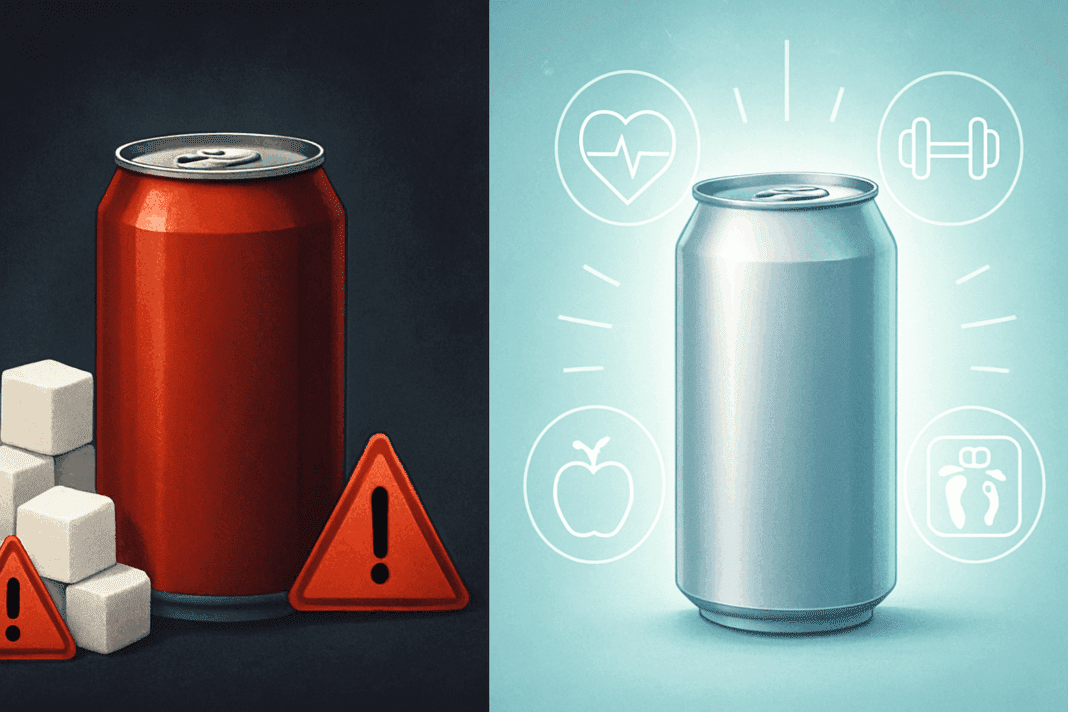In the ongoing pursuit of weight management and healthier living, one question continues to spark debate among nutrition experts, physicians, and wellness advocates alike: Do diet soft drinks help with weight loss? For many, the allure of a fizzy, sweet beverage without the added sugar or calories of traditional sodas seems like the perfect solution to cutting excess calories without sacrificing taste. As more people look for low-calorie alternatives in their diets, diet drinks have emerged as a popular choice—often perceived as both convenient and effective in supporting weight loss goals. But does the science truly support these claims, or are there hidden caveats that consumers should be aware of?
You may also like: Expert-Backed Weight Loss Tips for a Healthier Lifestyle: What You Need to Know for Long-Term Weight Control and Wellness
The conversation surrounding diet soft drinks and weight loss is far from one-dimensional. Some studies point toward modest benefits, while others raise concerns about metabolic impacts, appetite regulation, and long-term health effects. With so much conflicting information, understanding the true relationship between diet drinks and weight loss requires a deep dive into the scientific literature, dietary behavior patterns, and the mechanisms at play behind artificially sweetened beverages.
This article explores the most up-to-date research and expert perspectives to help you understand whether including diet drinks in your routine can support weight loss, or if they might hinder your progress in ways you didn’t expect. We’ll analyze evidence-backed findings, break down how diet soft drinks interact with the body, and examine the safety, benefits, and potential risks they present for individuals striving to manage their weight more effectively.
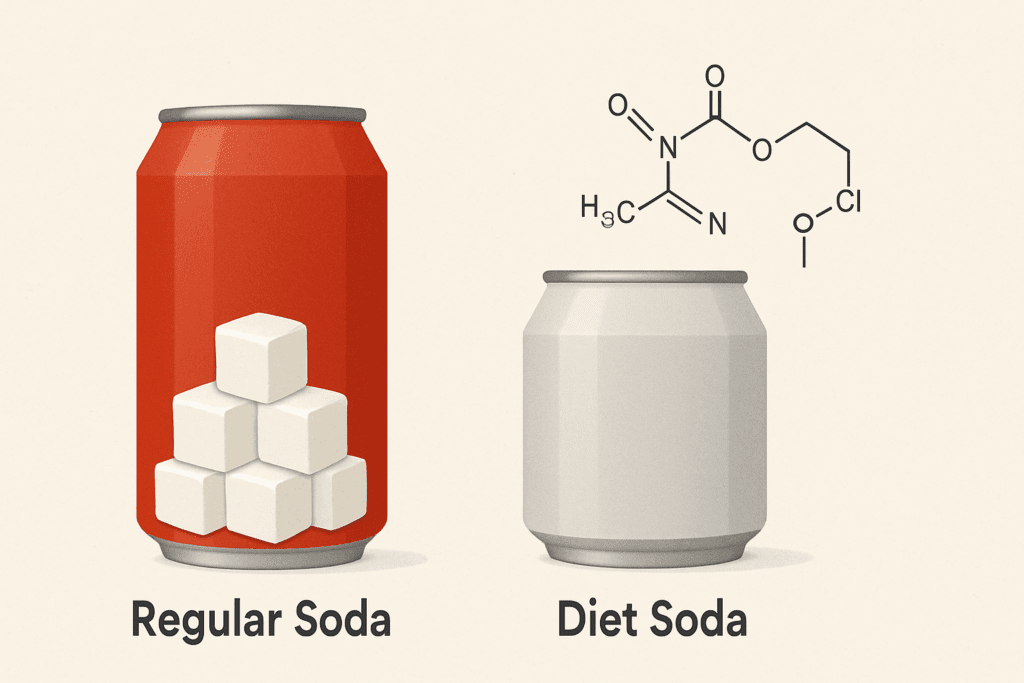
Understanding What Diet Soft Drinks Actually Are
To evaluate whether diet soft drinks promote weight loss, it’s essential to first understand what they are. Unlike their sugar-laden counterparts, diet sodas contain little to no calories and derive their sweetness from non-nutritive sweeteners. These artificial sweeteners—such as aspartame, sucralose, saccharin, and acesulfame potassium—can be hundreds of times sweeter than regular sugar, allowing manufacturers to use minuscule amounts while still achieving a satisfying flavor profile.
Diet soft drinks were initially developed as diabetic-friendly beverages and marketed to health-conscious consumers aiming to avoid the caloric burden of sugar. Over time, their role expanded into mainstream dieting culture. Today, they’re commonly positioned as a calorie-free solution for curbing soda cravings without compromising weight loss goals.
However, while they may appear harmless due to their lack of sugar and energy content, diet soft drinks interact with the body in complex ways that extend beyond calorie counting. Their effects on insulin response, appetite hormones, gut microbiota, and food preferences are areas of ongoing research—and controversy.
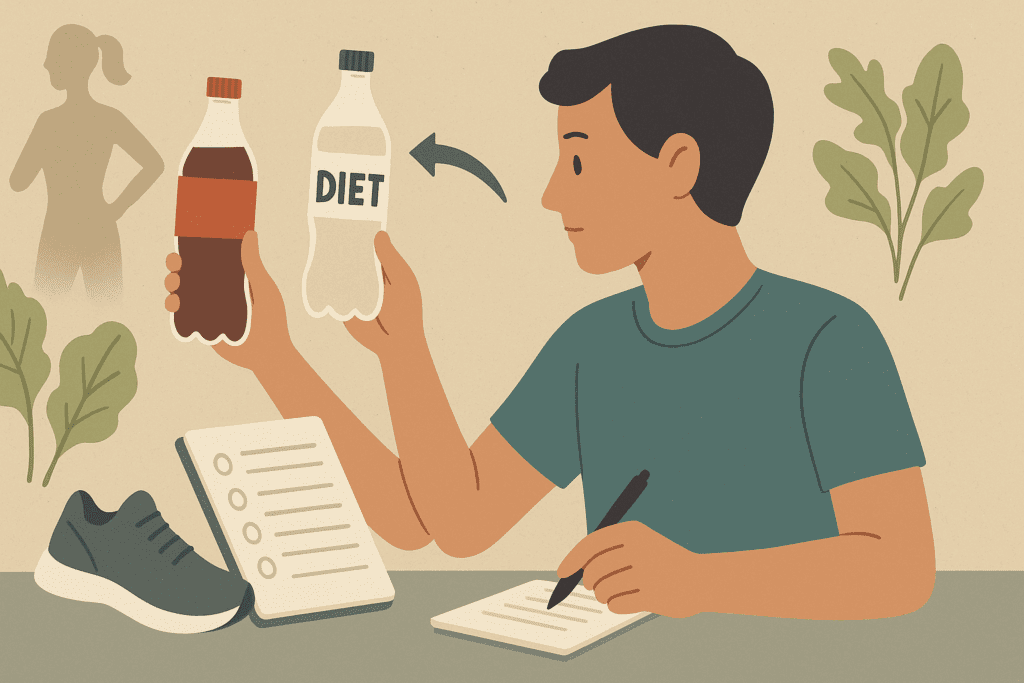
The Science Behind Diet Drinks and Calorie Reduction
From a purely mathematical perspective, reducing caloric intake is a fundamental component of weight loss. Replacing a 150-calorie regular soda with a zero-calorie diet soda can result in a net decrease in daily energy consumption. In theory, this energy deficit should support weight reduction over time. Numerous clinical trials have leveraged this logic, using controlled interventions to track weight loss outcomes among individuals who switch from sugary beverages to diet drinks.
Some studies support the notion that substituting regular sodas with diet alternatives leads to modest weight loss. A 2014 randomized controlled trial published in the journal Obesity found that participants who drank diet soft drinks while following a structured weight loss program lost more weight over 12 weeks than those who consumed water. The researchers hypothesized that the sweet taste of diet sodas might improve dietary adherence by satisfying cravings, thereby reducing the risk of overindulging in higher-calorie treats.
Similarly, a 2021 systematic review and meta-analysis in The American Journal of Clinical Nutrition concluded that non-nutritive sweetened beverages were associated with modest weight loss when used as substitutes for sugar-sweetened beverages. These findings suggest that, under specific circumstances, diet drinks may serve as tools for caloric control in individuals committed to a broader weight loss regimen.
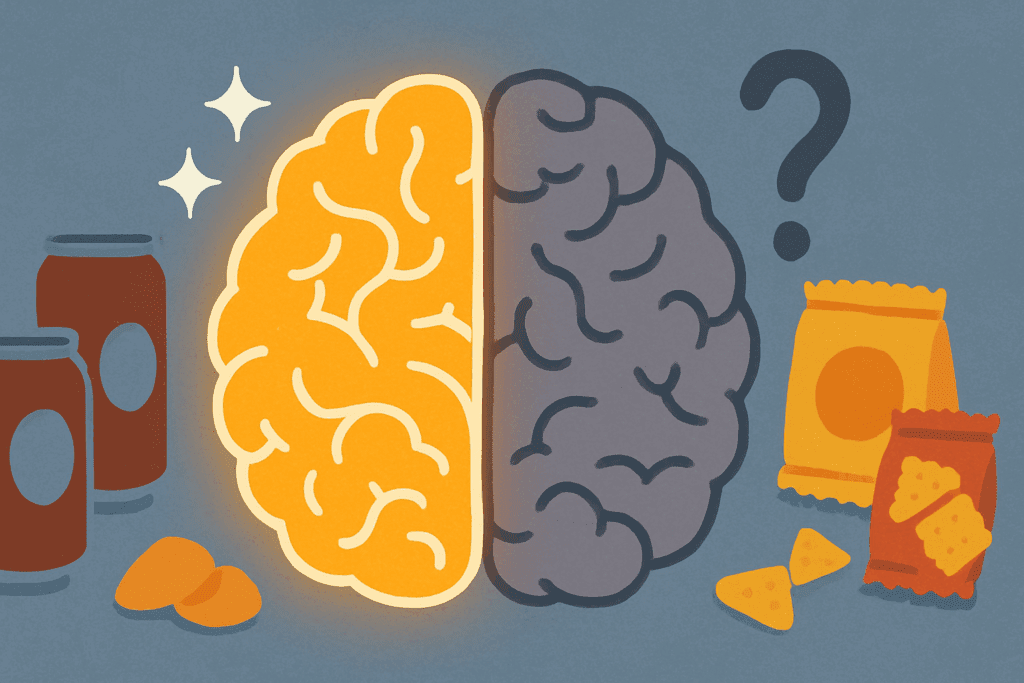
Appetite Regulation, Cravings, and Satiety: A Complicated Relationship
While diet soft drinks contain few or no calories, their influence on appetite and food intake is more complex. Emerging evidence suggests that artificial sweeteners may alter taste perception, reinforce a preference for sweetness, and potentially disrupt normal hunger and satiety cues. This phenomenon, sometimes referred to as the “sweetness without satiety” effect, proposes that consuming sweet-tasting substances without caloric content may create a mismatch between expected and actual energy intake, leading to compensatory overeating later in the day.
Some rodent studies have demonstrated that animals consuming artificial sweeteners tend to increase their total caloric intake over time. This has prompted researchers to question whether similar effects occur in humans. While not definitive, several observational studies in humans have found that frequent consumers of diet drinks report higher overall food intake and body mass index (BMI) compared to non-consumers. However, these studies often struggle to establish causality and may be confounded by pre-existing behaviors—such as individuals already prone to weight gain opting for diet drinks in an attempt to compensate.
In terms of satiety, there’s also concern that diet drinks may not provide the same physiological satisfaction as a caloric beverage. Unlike sugar, artificial sweeteners do not trigger the same insulin or leptin responses that help signal fullness. This could potentially result in increased snacking or larger portion sizes at subsequent meals, undermining weight loss efforts despite the zero-calorie content of the drink itself.
The Role of Diet Drinks in Long-Term Weight Management
Short-term studies may show promise for diet drinks in facilitating weight loss, but what happens over the long haul? Longitudinal studies exploring the long-term relationship between diet drinks and weight change offer mixed results. Some suggest that diet drinks can be part of a successful long-term weight management strategy, especially when used alongside a structured dietary plan. Others show that habitual consumption may be linked to weight gain, increased waist circumference, and adverse metabolic outcomes.
A 2015 study published in The Journal of the American Geriatrics Society followed older adults over nine years and found that those who drank diet sodas daily experienced nearly triple the increase in abdominal fat compared to non-users. While the study did not demonstrate direct causation, it raised important questions about how chronic consumption of artificially sweetened beverages might influence body composition over time.
Experts caution against relying solely on diet drinks as a weight loss tool without broader lifestyle changes. While diet soft drinks may support calorie reduction in the short term, their impact can be diluted or reversed if they reinforce unhealthy eating patterns or psychological dependencies on sweet-tasting foods.
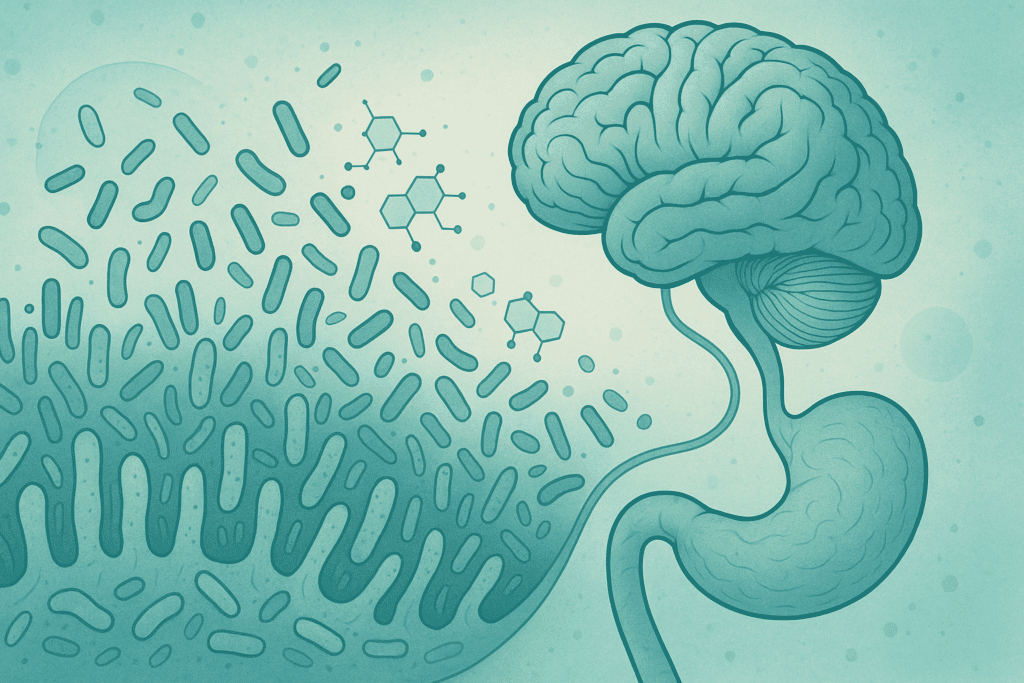
Metabolic Health and the Debate Over Artificial Sweeteners
Beyond weight management, there’s growing concern about how diet drinks may affect metabolic health. Several studies have explored associations between artificially sweetened beverages and conditions such as insulin resistance, type 2 diabetes, and cardiovascular disease. While some findings suggest a potential link, others argue these associations may be driven by reverse causality or confounding lifestyle factors.
For example, individuals with a higher risk of metabolic disease may switch to diet drinks as a perceived healthier choice, skewing observational data. Nonetheless, some researchers argue that artificial sweeteners may interfere with the gut-brain axis or alter gut microbiota in ways that impair glucose metabolism. Animal models have demonstrated disruptions in insulin signaling and changes in intestinal flora following long-term exposure to certain non-nutritive sweeteners, prompting further investigation into how these effects may translate to humans.
It is important to distinguish between different types of sweeteners, as not all have identical biological effects. For instance, aspartame and sucralose may differ in how they impact insulin secretion or gut bacteria. More research is needed to clarify these differences and provide evidence-based recommendations regarding specific sweeteners and their role in weight and metabolic health.
Psychological and Behavioral Aspects of Diet Drink Consumption
Another dimension of the diet drinks weight loss debate centers around behavioral psychology. For some individuals, the consumption of diet soft drinks provides a sense of dietary “permission”—a mindset that may lead to unintentional overcompensation in other areas of the diet. This phenomenon, sometimes described as the “health halo” effect, occurs when a person perceives one healthy choice as a license to indulge elsewhere, ultimately negating any calorie savings.
Additionally, reliance on artificially sweetened beverages may perpetuate a psychological dependence on sweetness itself, making it more difficult to transition toward a whole-food-based diet rich in natural flavors. While diet drinks may offer a temporary substitute for sugary cravings, they may also inhibit the palate’s ability to adapt to less sweet foods, potentially making healthier, lower-sugar dietary patterns harder to sustain.
From a behavioral standpoint, individuals who use diet drinks as part of a mindful, balanced eating plan are more likely to benefit than those who treat them as a loophole in an otherwise unhealthy routine. Moderation, awareness, and intentionality are key to ensuring that diet drinks support, rather than sabotage, long-term health goals.
Are There Health Risks Associated with Long-Term Use?
In addition to the metabolic concerns, diet soft drinks have been scrutinized for potential links to other health risks. Some studies have explored associations with hypertension, kidney function decline, and even stroke. A 2019 study published in Stroke, a journal of the American Heart Association, found that women who consumed two or more diet drinks daily had a higher risk of stroke and heart disease compared to those who drank them infrequently. However, the absolute risk increase was small, and researchers cautioned that lifestyle factors, preexisting conditions, and dietary patterns likely played contributing roles.
Regulatory agencies such as the U.S. Food and Drug Administration (FDA), European Food Safety Authority (EFSA), and World Health Organization (WHO) have all approved commonly used artificial sweeteners as safe for human consumption when consumed within recommended limits. Nonetheless, the potential for long-term subtle effects—particularly on vulnerable populations such as pregnant women, individuals with metabolic disorders, or children—remains an area of ongoing research and debate.
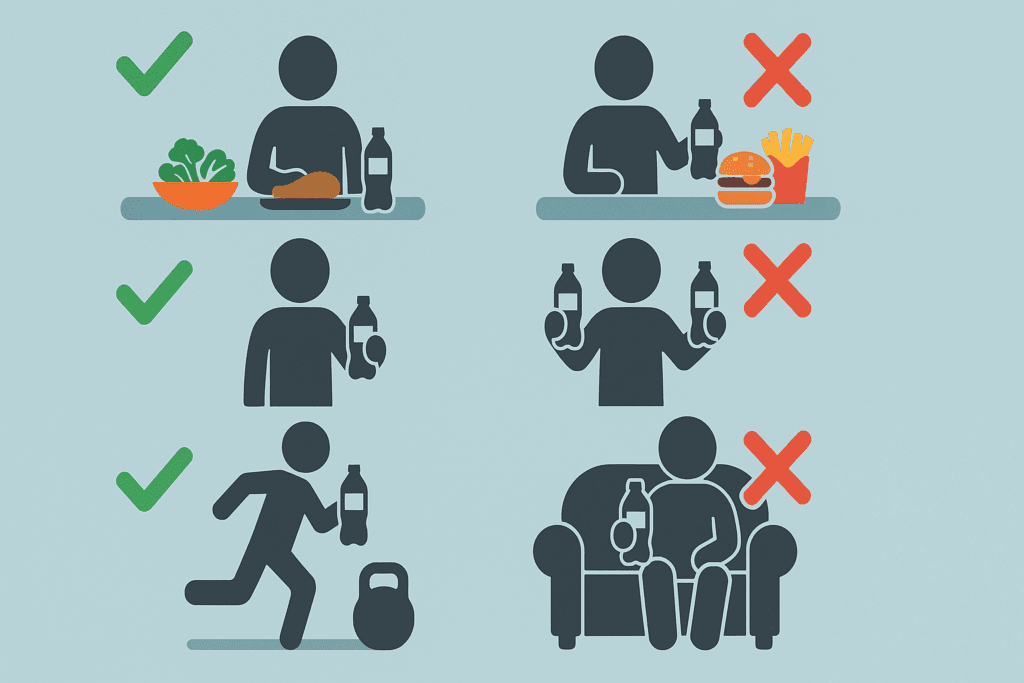
Practical Guidelines for Using Diet Drinks Safely in a Weight Loss Plan
If you’re considering incorporating diet soft drinks into your weight loss strategy, doing so with mindfulness and moderation is critical. While diet drinks can help reduce overall calorie intake, they should not be viewed as a panacea or a license for unrestricted eating. Rather, they may serve as a supportive tool within a comprehensive dietary and lifestyle framework focused on whole foods, regular physical activity, and behavioral change.
Choosing when and how to consume diet drinks can also make a difference. For example, using them to curb cravings during an occasional indulgence or as a bridge while transitioning away from sugary beverages may be beneficial. However, relying on multiple servings per day without addressing the underlying sweet cravings or emotional triggers for eating may hinder progress in the long run.
Additionally, be aware of what accompanies your diet drinks. Pairing them with ultra-processed foods or fast food meals may neutralize any calorie savings and contribute to poor dietary quality. Instead, aim to align their use with balanced meals and snacks that include fiber, protein, and healthy fats—nutrients that promote fullness and help stabilize blood sugar levels.
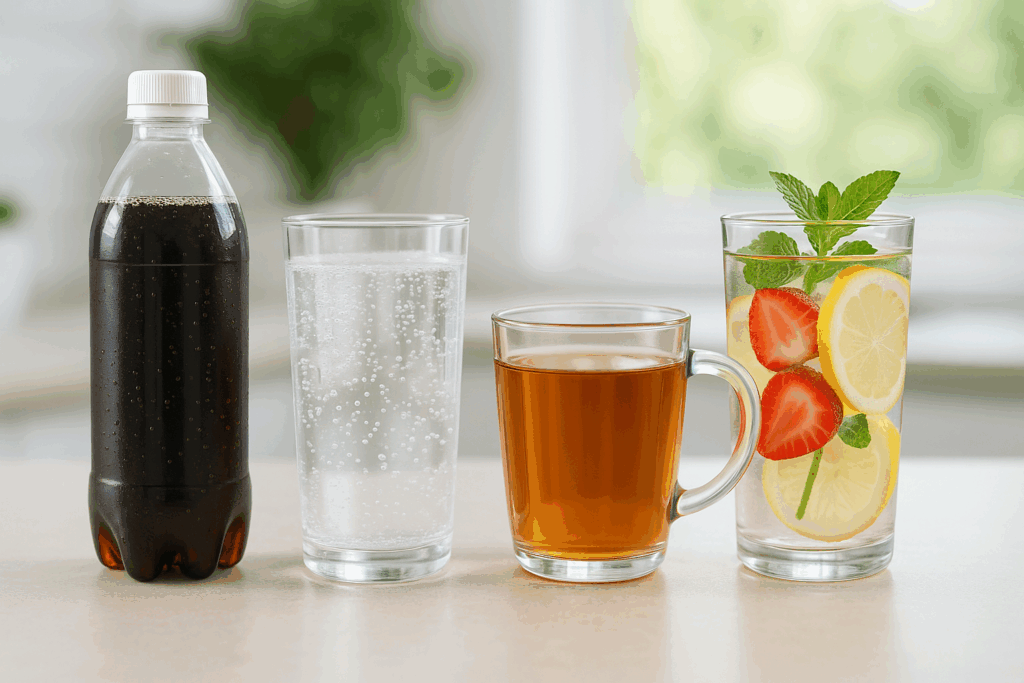
Diet Drinks vs. Other Low-Calorie Beverage Alternatives
It’s worth noting that diet soft drinks are not the only options for those seeking low-calorie beverages. Unsweetened teas, infused waters, and carbonated mineral waters offer refreshing alternatives without artificial ingredients. These beverages provide hydration and may offer additional health benefits, such as antioxidants from green or herbal teas. For individuals concerned about the potential long-term effects of artificial sweeteners, rotating between different low-calorie drinks can diversify the diet while minimizing exposure.
Some emerging alternatives include beverages sweetened with natural non-nutritive sweeteners such as stevia or monk fruit, which may offer a middle ground for those wishing to avoid traditional artificial sweeteners. Although these options are generally considered safe, more research is needed to understand their long-term impact on metabolism and weight regulation.
Ultimately, the key is not to replace sugary drinks with diet versions in isolation, but rather to take a holistic approach that incorporates a wide range of healthy dietary behaviors. This includes reading nutrition labels, practicing portion control, staying hydrated, and being mindful of the cues that drive hunger and satiety.
Frequently Asked Questions: Diet Soft Drinks, Weight Loss, and the Science Behind It
1. Can drinking diet soft drinks suppress hunger enough to support consistent weight loss?
While diet soft drinks contain no calories, their effect on hunger suppression is highly individualized. Some people report reduced cravings when using diet drinks as a substitute for sugary beverages, which may help them stick to a calorie-controlled diet. However, others experience heightened hunger afterward, possibly due to the brain expecting caloric intake from sweet taste and not receiving it. This mismatch may lead to compensatory snacking, making diet soft drinks weight loss efforts less predictable. Using these drinks as part of a larger strategy that includes high-fiber, protein-rich meals may offer better appetite regulation than relying on them alone.
2. Are there psychological downsides to relying on diet drinks for weight control?
Yes, the psychological aspects of diet drinks weight loss strategies are often overlooked. Some individuals develop a reliance on sweet-tasting beverages to manage emotional eating or stress, which can mask deeper behavioral triggers. This dependence might stall the development of more sustainable coping mechanisms, like mindfulness or intuitive eating. Additionally, the repeated association between sweetness and “reward” can reinforce sugar cravings over time, even without caloric intake. Long-term success in weight management often requires addressing both physical hunger and the psychological patterns behind eating behavior.
3. How do diet drinks impact people differently based on metabolic health status?
People with insulin resistance or prediabetes may experience different physiological responses to artificial sweeteners than those with normal glucose tolerance. For example, some small studies have suggested that certain non-nutritive sweeteners might influence insulin secretion or alter gut microbiota, especially in those already predisposed to metabolic dysfunction. While more research is needed, these findings suggest that the role of diet soft drinks weight loss support may vary depending on an individual’s baseline health. Personalized nutrition strategies that consider metabolic profiles are likely to yield better outcomes than one-size-fits-all approaches.
4. Do certain artificial sweeteners work better than others for supporting weight loss goals?
Not all sweeteners are created equal when it comes to their impact on the body. For example, aspartame and sucralose are commonly used in diet soft drinks and have been extensively studied, but their effects on metabolism, gut health, and appetite can differ. Some preliminary research suggests that stevia and monk fruit, which are considered more “natural” non-nutritive sweeteners, may have a more favorable impact on blood sugar control, though evidence is still emerging. If you’re using diet drinks weight loss strategies regularly, paying attention to the specific sweeteners used and rotating among different options may be beneficial for metabolic diversity and reduced long-term exposure.
5. Are there generational differences in how people perceive and use diet soft drinks for weight management?
Absolutely. Older generations often view diet soft drinks as a progressive, sugar-free solution to calorie control, while younger populations may be more skeptical, driven by concerns over artificial ingredients. Gen Z consumers, for instance, tend to prefer “clean label” products and may opt for sparkling water or beverages sweetened with plant-based extracts over traditional diet sodas. As wellness culture evolves, the way people integrate diet soft drinks weight loss tactics into their lifestyles is becoming more nuanced and reflective of broader values related to health, sustainability, and ingredient transparency.
6. Can switching from regular soda to diet soft drinks improve weight loss outcomes even if no other dietary changes are made?
Making the switch from sugar-sweetened soda to diet soft drinks can lead to a reduction in overall daily caloric intake, which may result in modest weight loss over time. However, if other dietary habits remain poor—such as high intake of processed foods or large portion sizes—the weight loss may be negligible or even reversed. Diet drinks weight loss benefits are more likely to manifest when they are part of a wider lifestyle change that includes mindful eating, physical activity, and balanced nutrition. Context matters as much as the switch itself.
7. How do diet soft drinks influence long-term taste preferences and food choices?
Regular consumption of sweet-tasting beverages, even those without calories, can condition the palate to expect sweetness in foods and drinks. This may inadvertently make naturally less-sweet, nutrient-dense foods—such as vegetables or whole grains—less appealing. Over time, this could subtly steer individuals toward a diet higher in artificial flavors and lower in nutritional quality. While diet soft drinks weight loss programs may provide a short-term substitute for sugar, it’s important to retrain taste buds toward appreciating natural flavors for long-term dietary improvement.
8. Is there an optimal time of day to consume diet drinks if you’re trying to lose weight?
While research hasn’t established a “best” time to consume diet drinks, some behavioral science insights suggest that timing can influence effectiveness. For example, using diet drinks in the afternoon, when sugar cravings and energy dips tend to occur, may prevent unplanned snacking or impulse eating. On the other hand, consuming them late at night may disrupt sleep patterns, particularly if they contain caffeine, which could indirectly affect metabolism and hunger regulation the next day. When used strategically, diet drinks weight loss strategies can be enhanced by aligning consumption with your body’s natural rhythms and behavioral tendencies.
9. What are some real-world pitfalls people encounter when relying on diet drinks for weight loss?
Many people assume that because diet drinks have zero calories, they can indulge in higher-calorie foods elsewhere, a psychological trap often referred to as “calorie compensation.” Others may pair diet soft drinks with fast food or desserts, negating any intended caloric savings. In social settings, individuals may also consume more alcohol or snacks under the impression that they’ve made a “healthier” choice with their beverage. To maximize the benefits of diet drinks weight loss strategies, it’s important to be aware of these common pitfalls and view diet beverages as one small piece of a much larger nutritional puzzle.
10. What does the future hold for diet drinks in the context of weight loss and health?
The beverage industry is rapidly evolving, and so are consumer preferences. We are seeing the emergence of hybrid drinks that combine probiotics, adaptogens, or electrolytes with low-calorie sweeteners, aiming to offer more than just sweetness without calories. There is also growing interest in functional beverages that support metabolism, hydration, or satiety—moving beyond the traditional scope of diet soft drinks weight loss applications. As scientific understanding deepens and consumers demand more holistic health benefits, the next generation of diet drinks is likely to offer targeted nutritional support in addition to low calorie content. These innovations may redefine how diet drinks are used in future weight loss strategies.
Final Thoughts on Diet Soft Drinks, Weight Loss, and Making Informed Choices
The relationship between diet soft drinks and weight loss is nuanced, and no single answer fits every individual. While diet drinks can contribute to calorie reduction and serve as part of a broader weight loss plan, their benefits depend heavily on how they are used—and in what context. Evidence suggests that substituting sugary beverages with diet alternatives may support short-term weight management, especially when coupled with a structured diet and exercise regimen. However, over-reliance on these beverages without addressing broader behavioral, psychological, and metabolic factors may limit their effectiveness or even contribute to unintended consequences.
To use diet drinks wisely, it’s essential to remain informed by credible science, listen to your body’s cues, and integrate them within a comprehensive wellness strategy. Whether your goal is to shed a few pounds or make healthier beverage choices, understanding the role that diet soft drinks can play—and their limitations—will help you navigate your weight loss journey with greater awareness and control.


